ZERI
Zero Emissions Research and Initiatives
Tea and rhinos
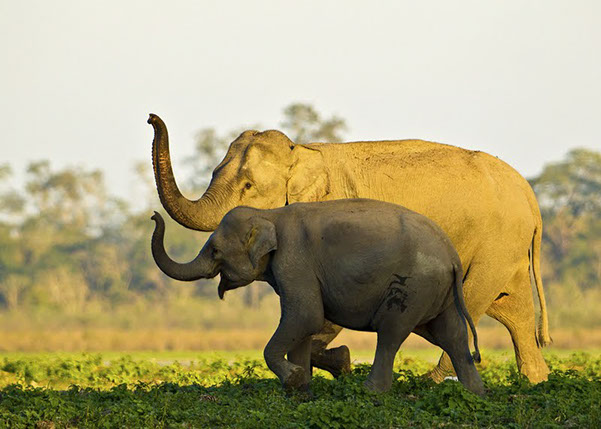
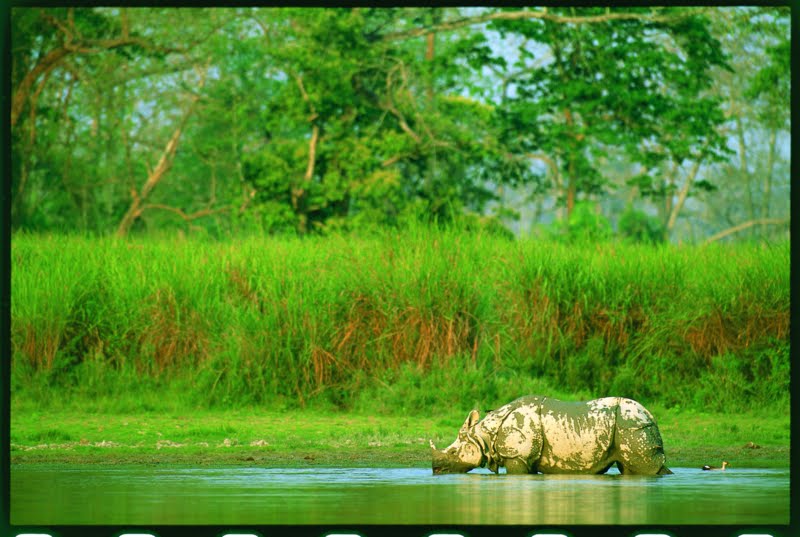
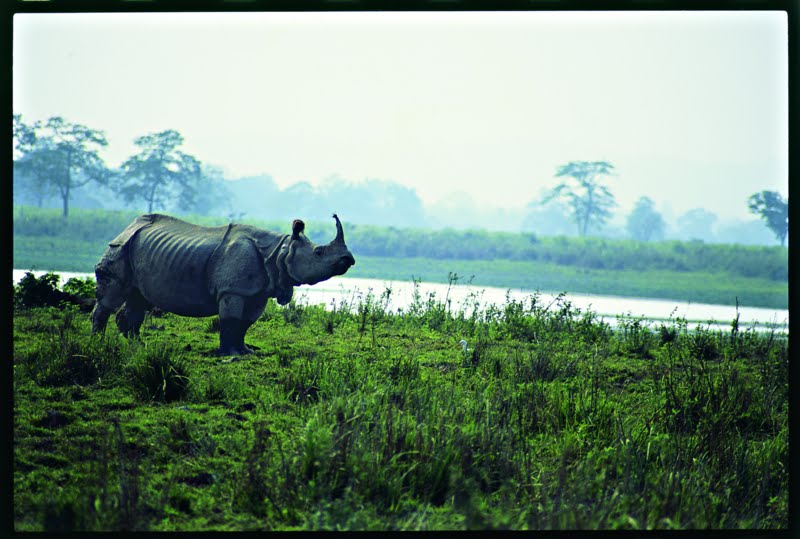
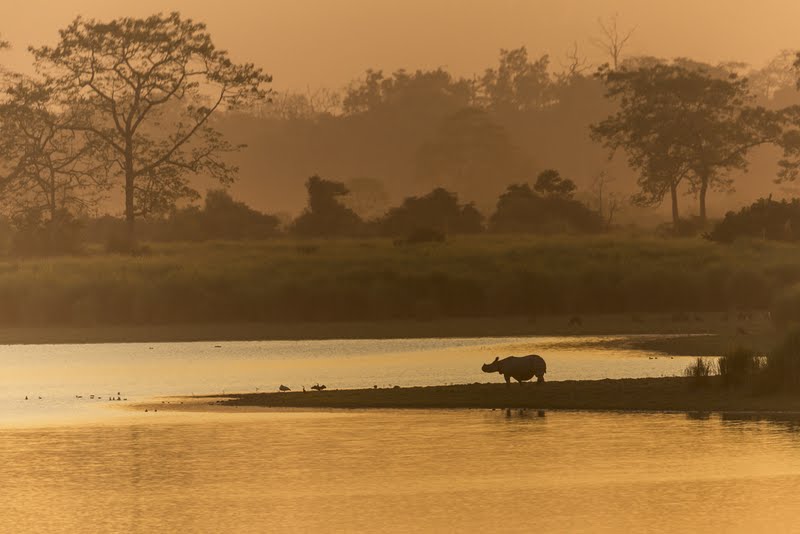
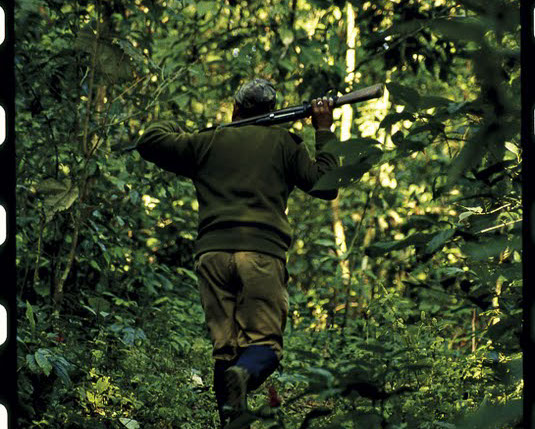
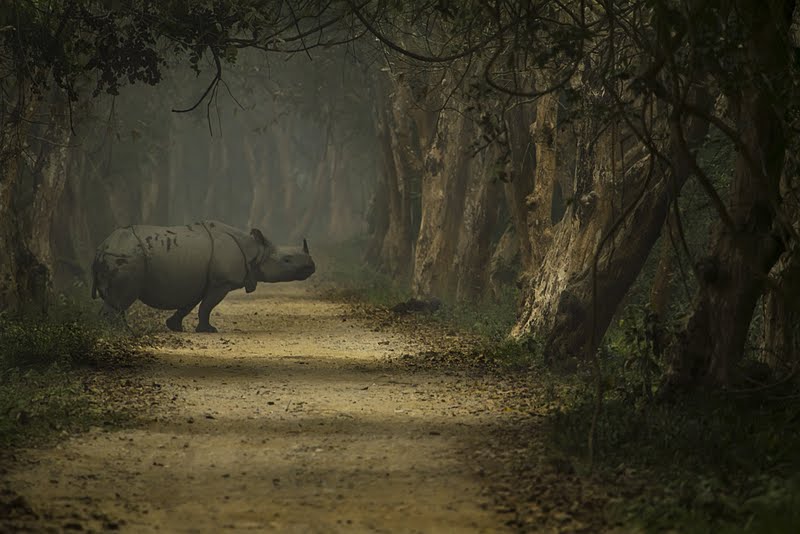


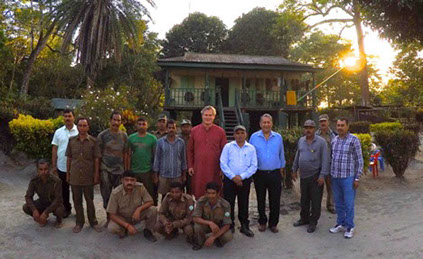

© Casiranga Tea Park
The "Tea and Park" program aims to offer a fresh insight on how to combine (1) competitiveness of organic farming, that has always been considered more expensive, at the same time (2) achieve food security and social services for the local population, and (3) improving protection from human encroachment in one of the world's most prominent nature parks with a unique fauna and flora. As far as we know this triple response to critical needs is not attempted at this scale elsewhere.
We believe that unless one undertakes to achieve all three at the same time - over time - through an interconnected portfolio of initiatives, one will not achieve any of the targets. It is the integration of social, economic, cultural and ecological objectives that makes the whole viable.
The pruning of the tea bushes represents the first large volume of waste that is left underused on the farm. Its volume and weight is a multiple of the tea harvest. The management has stopped burning this debris and has resorted to composting. It is important to remind ourselves that tea bushes left to grow without control turn into tall hardwood trees. Thus, the pruning stunts the growth through a masterful clipping process and promotes the growth of fresh leaves, which are harvested and processed locally as tea. Since hardwood takes years to degrade, the return of this organic debris into soil nutrients is slow, and certainly does not contribute to the dire need to replenish the soil with carbon, nor does it generate more revenue or helps to cut costs. The better option is to use the hundreds of tons of organic matter to farm mushrooms.
Mushrooms are not only an extraordinary degrader of wood, these devourers of ligno-cellulose produce fruiting bodies of commercial value. One ton of hardwood could generate as much as half a ton of shiitake mushrooms. Now if one were to time the bagging of the substrate based on pruning, and the vegetation of the mushrooms then one can plan to harvest at the same period that there is no tea harvesting and processing plant stands idle. This implies that the drying, grinding and bagging operation shifts from 7 months to a whole year. That contributes immediately to profit and to jobs. Part-time staff can now be full time, more versatile, better paid and involved in the development of the new business, that improves food quality and security.
In addition to the pruning, the park and its surroundings are suffering from pockets of infestations of water hyacinth. Research and practice in Africa have proven that this invasive fibrous perennial plant with seeds germinating over seven years is an ideal substrate for mushrooms as well. So, when the pruning has been exhausted, then the water hyacinths can supplement the supply of substrates creating a stable business with multiple sources of raw materials. It could even be converted into a year-round business increasing the volume of processing at the factory and the revenues, also for the local population.